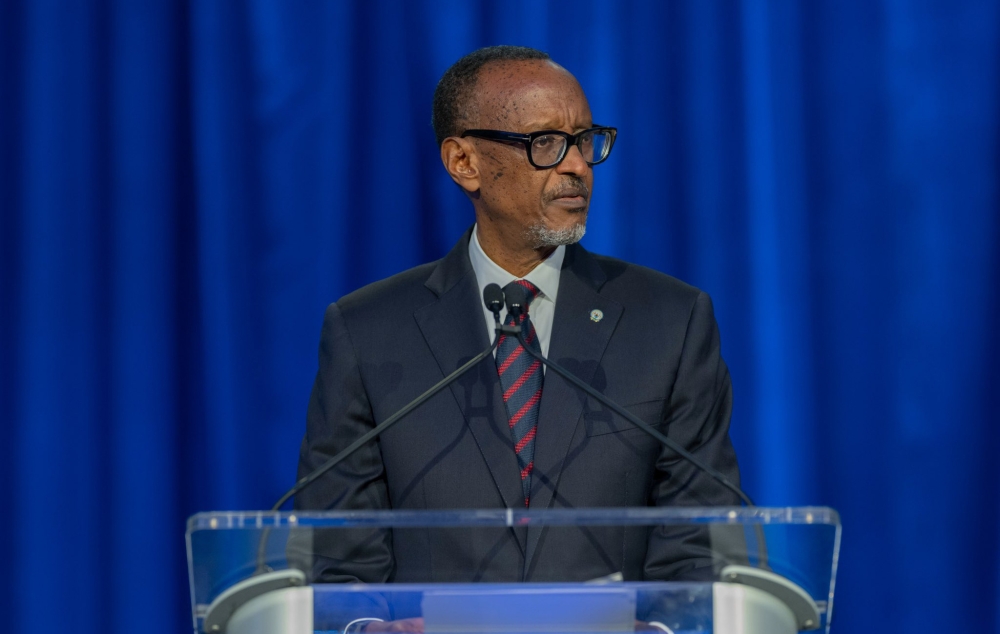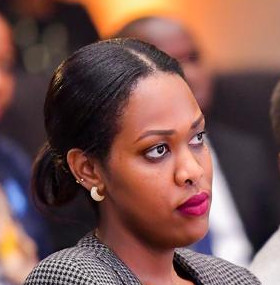

President Paul Kagame, on February 1, said that Rwanda’s experience with the Genocide is a warning to the world of what happens when hatred triumphs over humanity, noting that it is a lesson Rwandans had to learn at an unimaginable cost.
ALSO READ: President Kagame joins over 4,000 Rwandans in Washington, D.C. for Rwanda
He delivered the remarks as a keynote speaker at the US National Prayer Breakfast in Washington, D.C, an annual gathering of 3,000 guests including US Cabinet members, US Congress members, the diplomatic corps, UN diplomats, and US and foreign business leaders, to assemble and pray together.
He attended the event ahead of the eleventh edition of Rwanda Day slated for February 2 and 3, bringing together more than 4,000 Rwandans and Friends of Rwanda.


While speaking, Kagame said he was asked to answer a simple question of how one repairs a country after it loses a million people in a genocide –a question that any Rwandan should be an expert on.
"We lost ten per cent of our population over the course of three months in 1994 because the government of the time said the only way to save the country was to kill all the Tutsi, down to the last infant.”
He explained to the participants how the 1994 Genocide against the Tutsi was stopped and the journey of delivering justice while preventing its transmission to a new generation.
"Today, against all odds, our country is peaceful, flourishing, entrepreneurial, and most importantly, united. But Rwanda’s experience is more than a story. It is also a warning. A warning about what happens when we allow hatred to triumph over humanity.”
ALSO READ: There will never be genocide again in Rwanda - Kagame vows
Emphasising that genocide can happen anywhere when political leaders preach division and hatred while people of faith and science remain silent, Kagame noted that the world has not yet learned the lessons which Rwandans have had to learn, at an unimaginable cost.
He recounted how he, like countless other Rwandans, was driven into exile at the age of four, and grew up in refugee camps amidst all hardships, until 1990, when he moved to liberate Rwanda from ethnic dictatorship. He was studying at Fort Leavenworth, as an officer in the Ugandan army.
After stopping the Genocide, Rwandans were displaced and bereaved, public institutions destroyed, harvest ruined, and no money to rebuild the country, to an extent they were expected to repay the money the genocidal government had borrowed to purchase machetes and guns.
Survivors were asked the impossible
"We could not allow people to take justice into their own hands. We had to break the cycle of violence, and convert the urge for vengeance into a national programme of unity and reconciliation,” Kagame said.
While hundreds of thousands of people deserved to go to jail for life, or even be hanged, by any measure of justice, the death penalty was immediately abolished.
"We, therefore, had to ask the survivors of Genocide for the impossible, in order to restore our nation. To swallow their anger and bitterness. To live together again with those who they had watched murder their loved ones, as their own children flourished,” he added.
"I could not ask anything of the perpetrators. Only the survivors had something left to give: Their forgiveness.”
Kagame noted that even though Rwanda had to turn the corner, the same genocide ideology is still alive in the region, and as it was then, the international community remains indifferent.
‘Reconciliation is an act of faith’
Reconciliation is an act of faith, the Head of State noted, it means envisioning a new nation, free of hatred and injustice, and turning that dream into flesh and spirit, day by day.
"The function of leaders is to give people the trust to suspend disbelief, for as long as it takes to transform the mindsets of the next generation...leaders are there to absorb that pain and bear the weight of doubt, not to create more pain and use doubt as a weapon for political ends.”
In his view, healthy nations are those where people always strive to put the politics of unity and peace above all else, no matter how many times they fall short of that ideal.
"It is the practice of reconciliation, in matters large and small, which creates and recreates healthy nations and turns strangers and enemies into a family of citizens. That is Rwanda’s constant work, today and every day.”


